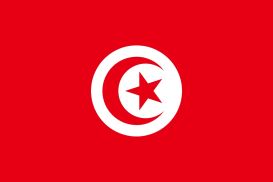
Author(s): Presidency of the Government, E-Government Unit
Resource Type: Case studies
Countries: Tunisia
SDG: GOAL 16. Peace and Justice Strong Institutions
Keywords: Open Data, Open government, Access to Information, Public Sector Innovation, Transparency
Open Government Data Initiative in Tunisia
Source in Arabic: ENACT Case Study - Open Data Initiative, Tunisia
The Open Government Data initiative is a national programme for providing access to government data that is produced by public institutions. It aims at promoting transparency and access to information, as well as supporting innovation and social and economic activities. The implementation of this initiatives is based on a number of strategic frameworks, the most important of which is the Smart Government 2020 strategy, the national plan for open data, and the Open Government Partnership programme.
Principles supported
- Responsiveness
- Trust
- Transparency
- Inclusiveness
- Effectiveness
Technology focus
Data centres - Open Data
Purpose
The objectives of the initiative include enhancing transparency and accountability, modernizing public administration and improve the quality of government services. It also aims to promote innovation in the public sector and provide access to data that can be used to develop new services and create jobs. The government also seeks to strengthen decision-making mechanisms, engage citizens and share information on the government programmes and policies, which would contribute to enhancing public trust in the Government.
Contributors/ Partners
- e-Government Unit of the Presidency of Tunisian Government, and Ministries of Agriculture, Industry, Culture and Transport.
- Civil society organizations, including Onshor and the African Association for Geospatial Development.
Functions and/or Features
- Provide access to open datasets that can be re-used, through the open data portal.
- Enable users to submit requests for information, record reuse cases, or report on events.
- Collect government data and link it to the portal to facilitate the preparation and publishing of data.
- Provide training programs on open data and related systems and develop the related practical manual.
Outcomes, impacts & changes
- Publish government data within six sectoral open data portals linked to the portal, enabling access to more than 2,370 datasets.
- Implement training programs on open data for public institutions and participating ministries.
- Preparation of a practical guide on open public data in Arabic and French.
- Implement initiatives to promote the reuse of open data through competitions such as OpenGovDataHack and Hack4Transaprency.
- Development of applications and startups based on open data reuse, such as Djerba bus, Wassalni, Thnity, and RNTT.
Challenges
- Promote a culture for open data, raise awareness on its importance and engage citizens.
- Lack of a legal provision that mandates government departments to participate in the initiative, which required the issuance of a government order.
- Limited financial and human resources and technical expertise for the initiative.
- Keeping pace with technological trends in open data.
- The need for a common infrastructure to standardize and organize data.
Lessons learned
- The Open Data Initiative in Tunisia plays a pivotal role in promoting data sharing and collaboration between government entities.
- The participatory approach and learning-by-doing have contributed to improving the open data ecosystem.
- The data quality and compliance with international standards contributed to the success of the initiative.